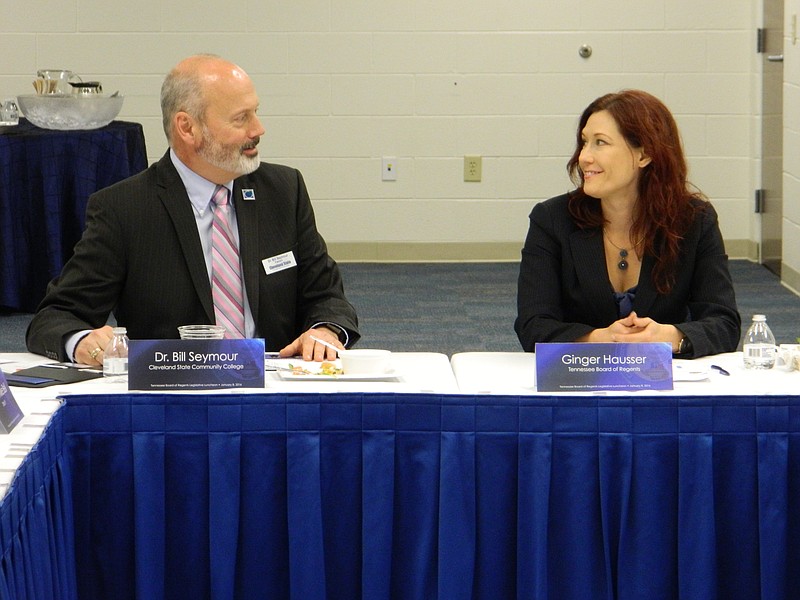CLEVELAND, Tenn. - Campus security, improved broadband access and building needs have been cited as priority concerns by representatives of Cleveland State Community College and the Tennessee College of Applied Technology of Athens.
On Friday, Sen. Mike Bell, R-Riceville, Rep. Dan Howell, R-Georgetown, and other state legislators discussed these issues with education officials during a Tennessee Board of Regents luncheon at Cleveland State.
Statewide, focus will be placed on improving the security of secondary education facilities, both in structures and campus police training, said Ginger Hausser, director of external affairs with the Board of Regents.
However, having more guns on campus - except in the hands of law enforcement officers - is not viewed as desirable by campus police chiefs, Hausser said.
"They would hate to have law enforcement accidentally shoot the wrong person who is trying to do the right thing [during an active shooter situation]," Hausser said.
Although Bell did not voice his position during the meeting, he and Hausser acknowledged he has taken a different stance in response to campus violence.
In October, after a mass shooting at an Oregon community college, Bell said he was considering legislation that would relax firearm restrictions to allow some state-issued handgun permit holders to go armed on state public college and university campuses.
"I think we need to give our citizens the best chance possible to defend themselves when that kind of situation comes up," Bell said.
Broadband access will continue to be critical to the success of students and the development of the workforce, said Cleveland State President Dr. Bill Seymour, expressing support for legislation that would allow utilities to provide Internet services beyond their footprint area.
"We are continually advancing our use of technology," said Seymour, citing the challenge it presents to students, especially from rural communities, who do not have broadband access at home.
"Statewide, I think the citizens and elected officials understand that broadband is like what electricity meant in the 1930s," Howell said. "Without the high technology available through broadband, we will not be able to develop rural areas."
Education officials also cited the need for state allocations for new or renovated facilities.
A final investment of $2 million will allow TCAT Athens to break ground July 1 on a proposed $5.2 million Center for Advanced Manufacturing and Business, said Stewart Smith, director of the Tennessee College of Applied Technology of Athens.
Increased funding will be needed for the repair, replacement and renovation of Cleveland State's 50-year-old buildings "to give students the first-class educational environment they deserve," according to a list of the school's legislative concerns.
Paul Leach is based in Cleveland. Email him at paul.leach.press@gmail.com.

